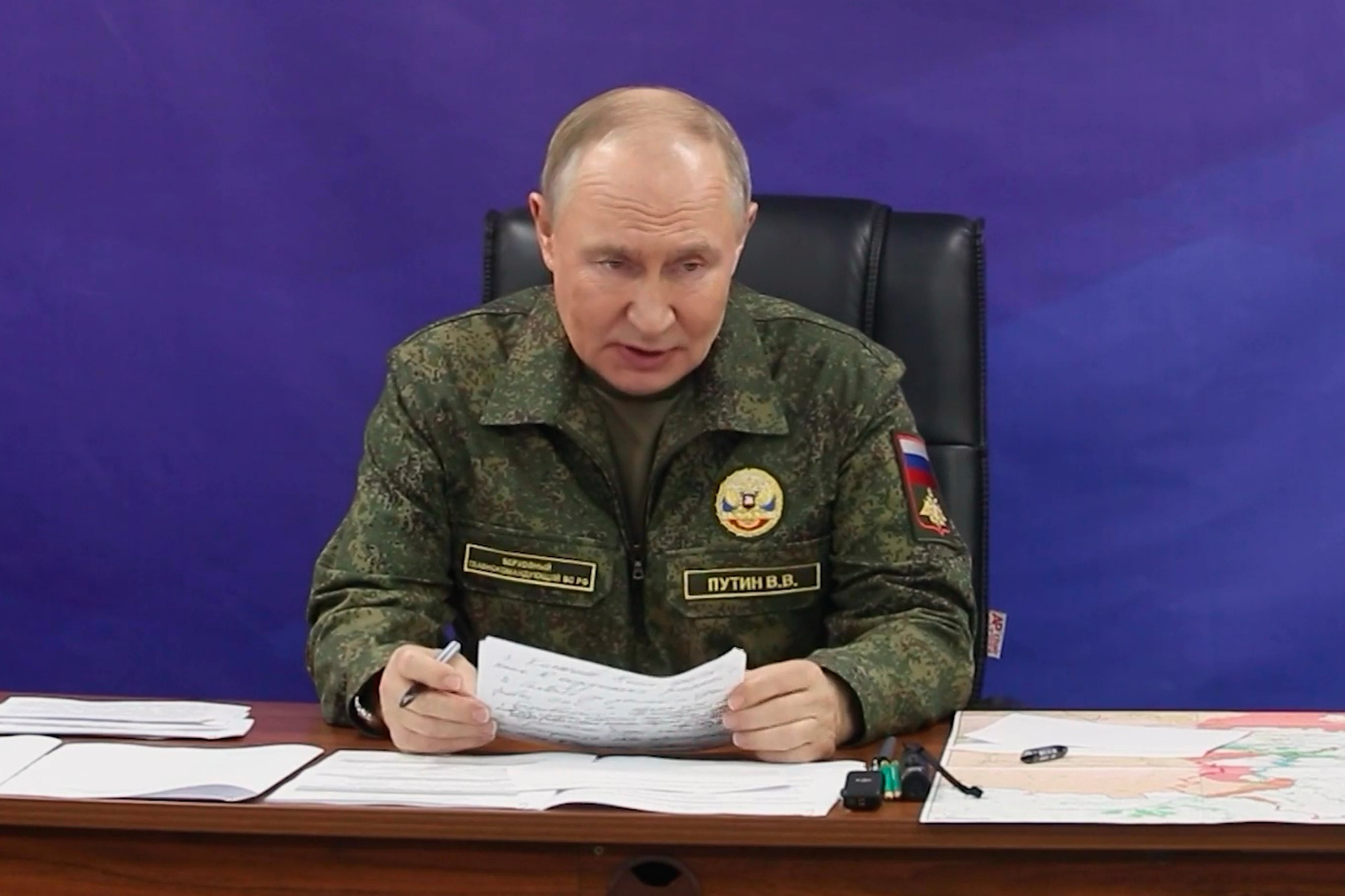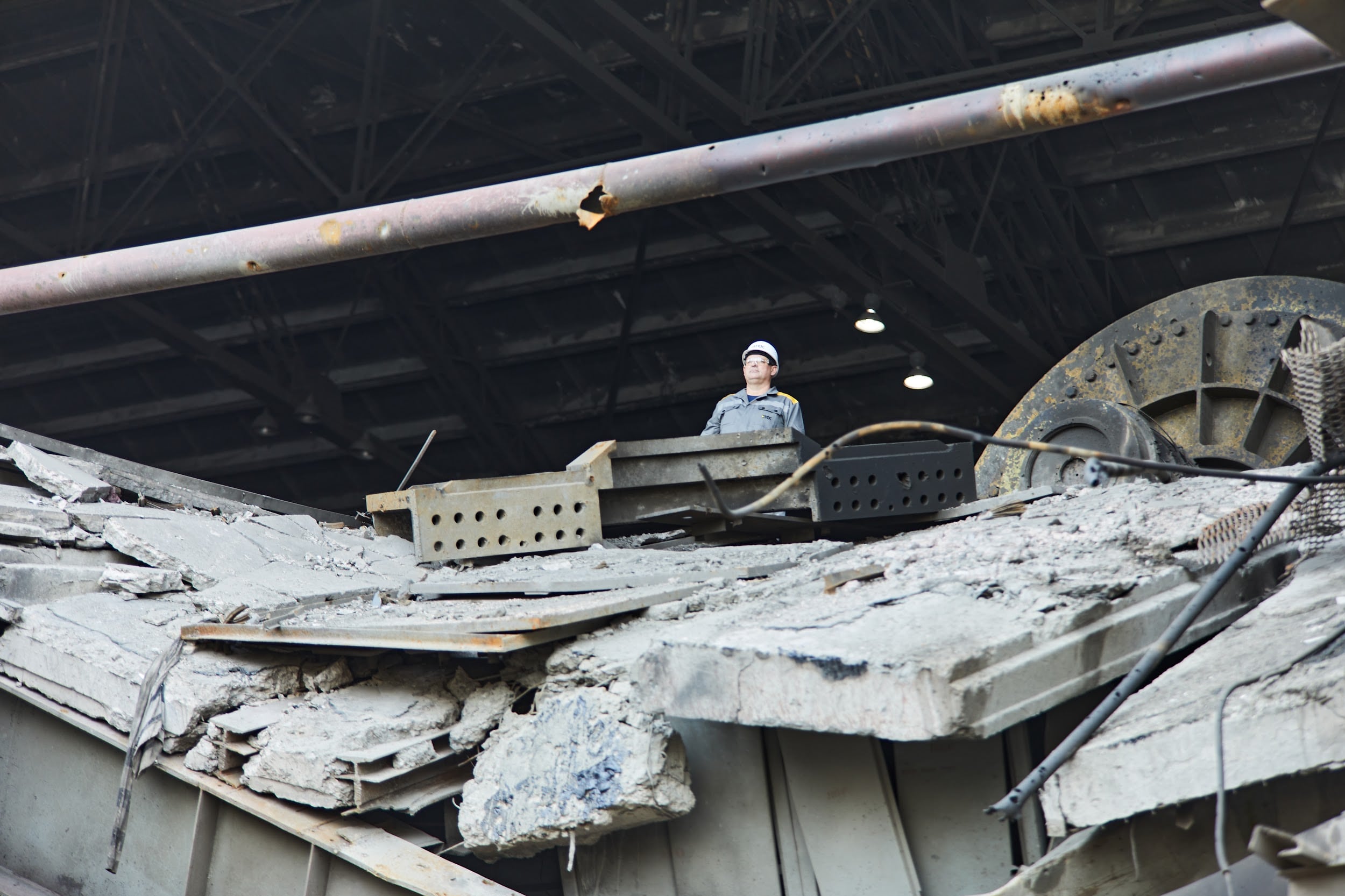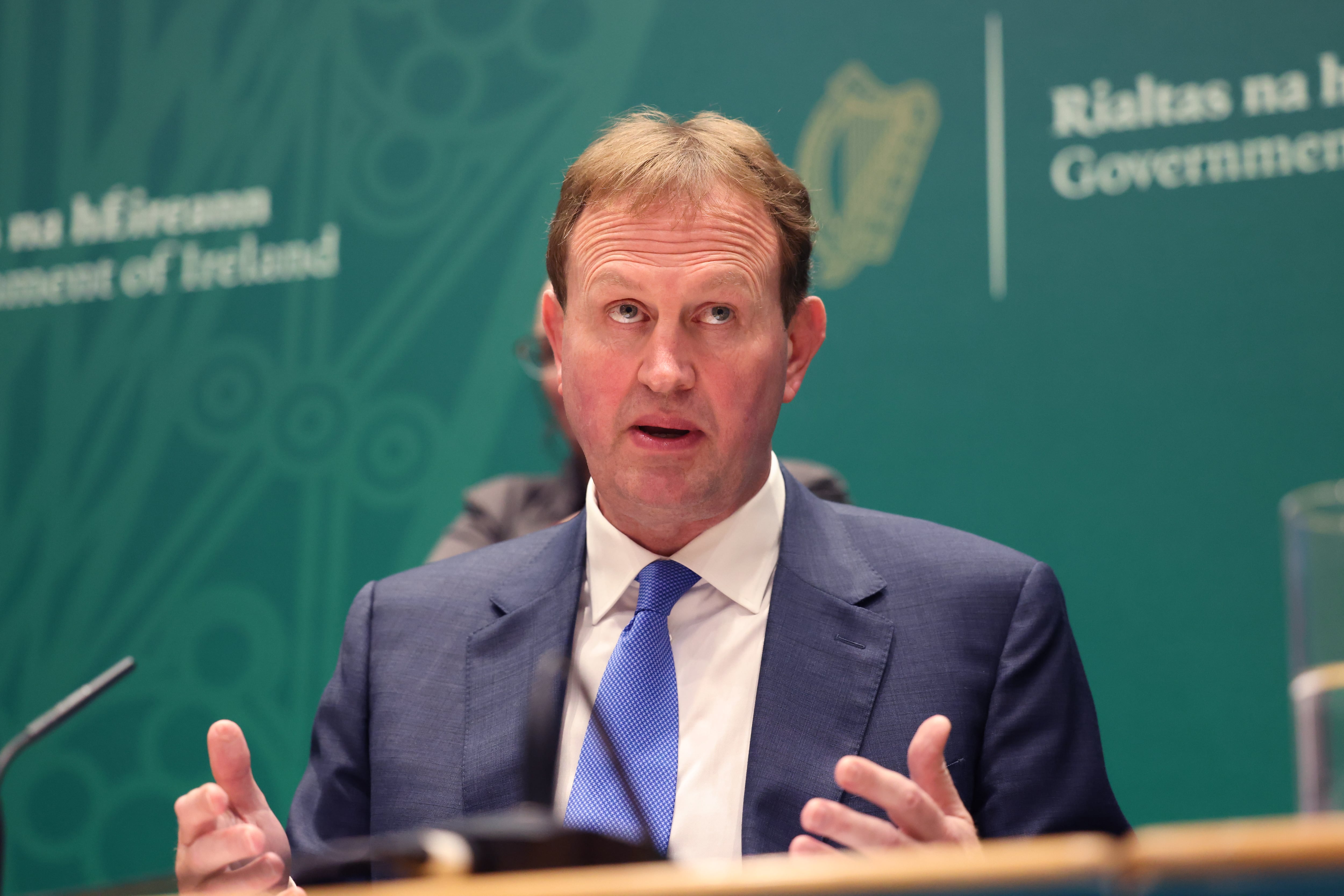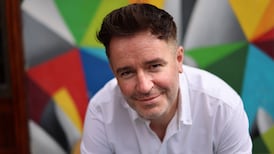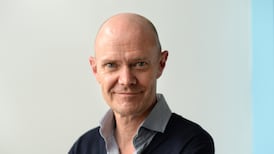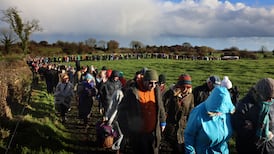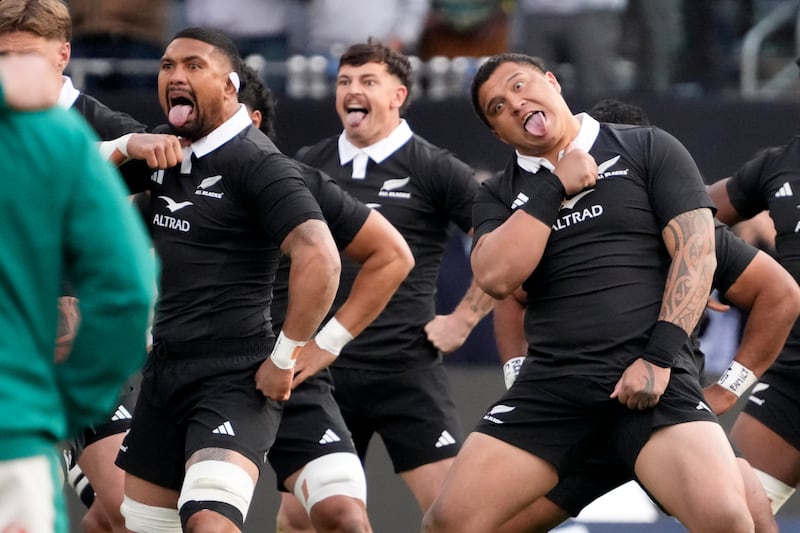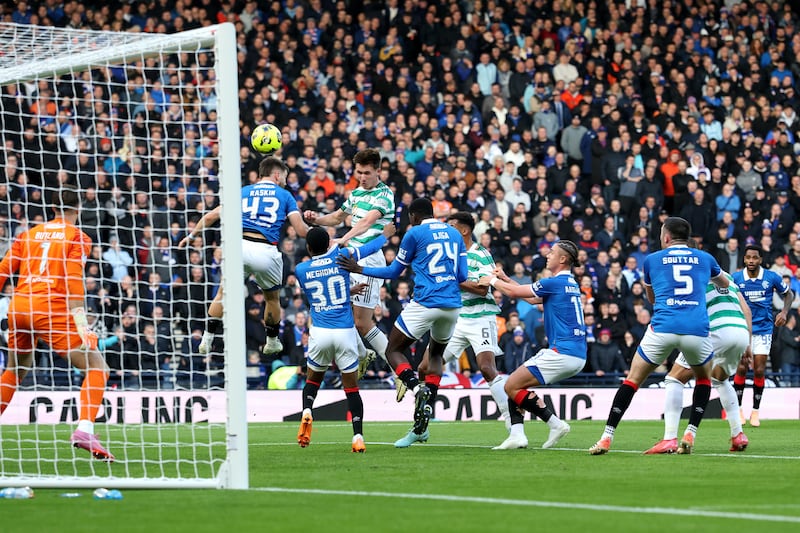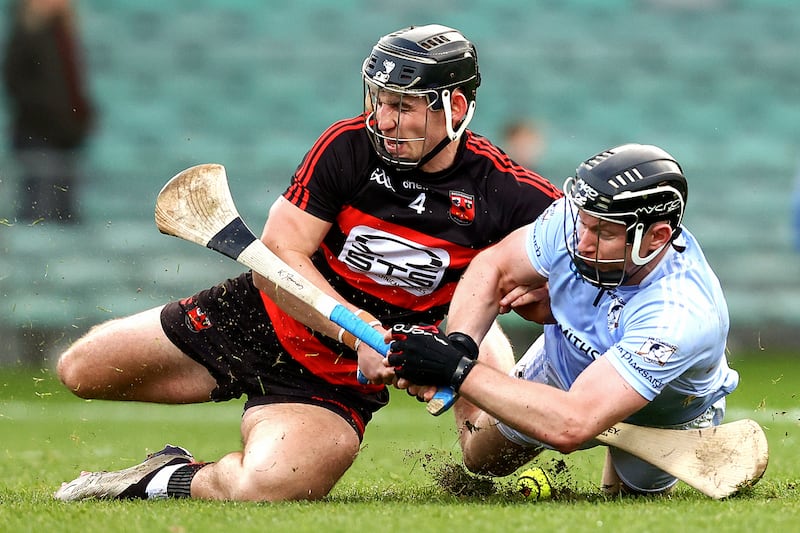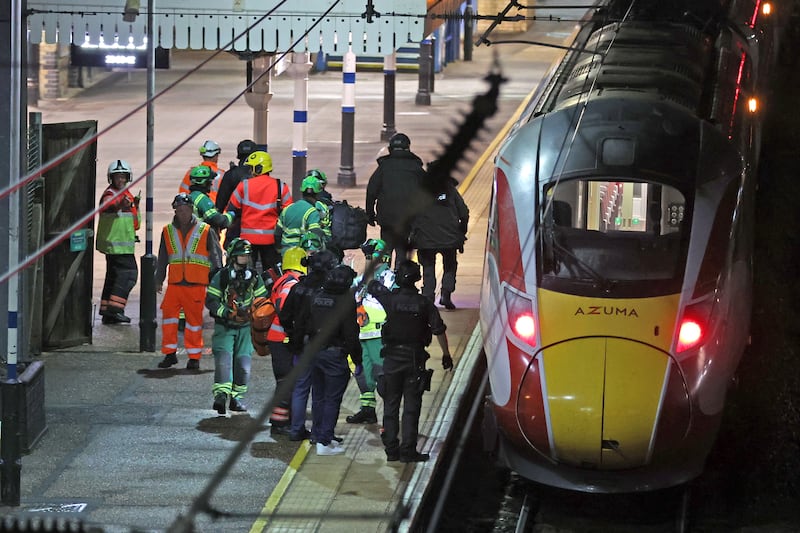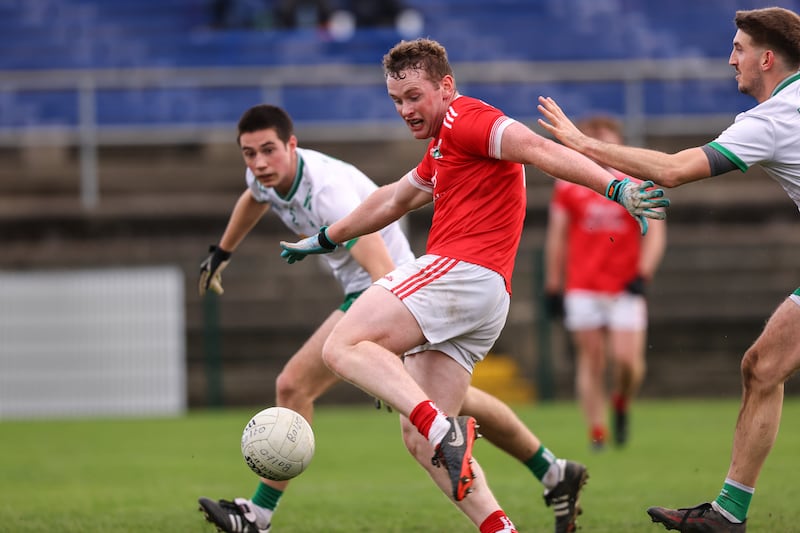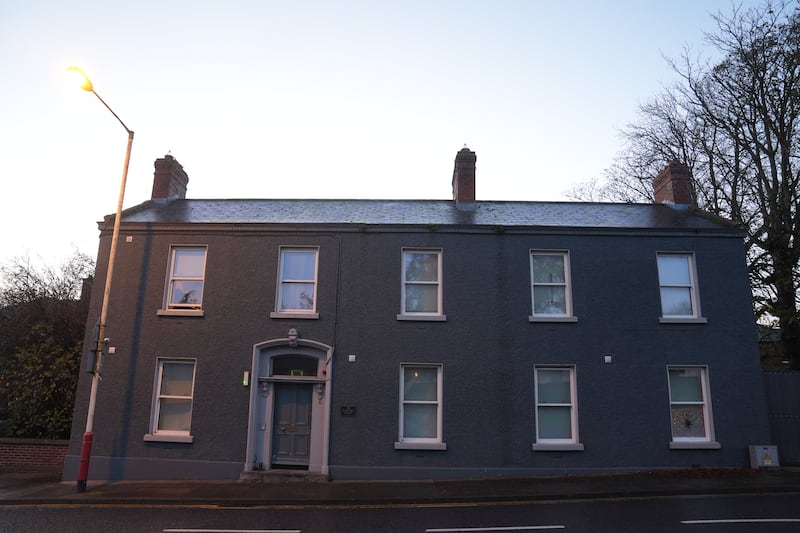In February 2012, five Russian women in brightly coloured dresses and balaclavas screamed a “punk prayer” from the altar of a Moscow cathedral, imploring the Virgin Mary to “banish” the country’s increasingly repressive president, Vladimir Putin.
A decade later Putin started an all-out invasion of Ukraine, claiming the pro-western democracy was run by Nazis conniving with Nato to destroy Russia.
Maria Alyokhina, who was jailed for two years for her part in the punk prayer, listened to Putin in a Moscow cell; she had been detained for the umpteenth time for protesting against the regime that was now starting Europe’s biggest war since 1945.
“Ten years,” the co-founder of protest and performance-art group Pussy Riot reflects in her new book, Political Girl: Life and Fate in Russia. “Virgin Mary, banish Putin. Well, where are you now?”
READ MORE
Alyokhina could be lamenting the absence of divine intervention in Russia, or asking herself and like-minded compatriots what they had achieved in a decade of painful and largely fruitless opposition. Or perhaps challenging the West over its failure to stop Putin’s methodical construction of a brutal dictatorship and war machine.
The book is a vivid diary of how she and friends scrapped with that system at close quarters and saw it grow stronger and stranger as it fed on paranoia and violence, until many were forced to flee and continue their fight abroad.
“I had no clear idea of who I was writing for,” Alyokhina says on a video call from Berlin. “For everyone who is fighting, I suppose. It is everything I can give. It is my experience of what I saw with my own eyes, everything that was happening with me and with those who were – and are – fighting for this country, to make a difference.
“I hear questions about why Russians are not protesting – well, spend a day and read this. We were protesting. But things got worse and worse every year and no one gave a f**k.”
Yet Alyokhina is clear-eyed about the extent of her people’s responsibility for the rise of Putin. About how the overwhelming majority of Russians chose to stay silent as their rights were stripped away, how criticism of the Kremlin and its war was outlawed, and how a feverish pride in military might and aggression drowned out all talk of poverty, corruption or any of the country’s other myriad ills.

In 2020, when opposition leader Alexei Navalny nearly died after being poisoned by a state hit squad in Siberia, and Putin changed the constitution to allow his rule to continue until 2036, Alyokhina protested in central Moscow near the Lubyanka, headquarters of the Soviet and Russian security services for more than a century.
“Across the road – at the entrance to the Lubyanka’s main building – people are being detained. Not many, 10, maybe 20. Why are there so few of us?” she writes.
“They just poisoned a man for telling the truth, the constitution has been amended – where’s everyone? What has happened to us? When did it start? A long time ago. Whose fault is it? Seems like it’s ours.”
Alyokhina, now 37, has spent most of her adult life fighting the rising tide of repression in Russia. She has spent hundreds of nights in prison cells and under house arrest, often parted from her son Filipp, who was only five when she was jailed for the punk prayer with two other members of Pussy Riot.
During the 2014 winter Olympics in Sochi in southern Russia, Alyokhina and other members of the group were detained several times and attacked by Cossack men with whips and tear gas.
It’s a strange feeling: being in prison, listening to dispatches from the front, and willing your country to lose
— Maria Alyokhina
In the following months, Putin occupied Crimea and formed heavily armed militias to seize territory in eastern Ukraine, and set Russia on a course from autocracy to dictatorship – and towards full-scale war with its neighbour.
In 2015, opposition leader Boris Nemtsov was shot dead on a bridge near the Kremlin. Last year, Navalny died in a prison camp in the Russian Arctic. In between, demonstrations were effectively outlawed, and riot police beat and detained anyone who dared to protest. Now critics of the war can be jailed for 15 years for “discrediting the army” and prison terms are doled out for posts on social media that offend the authorities.
But Pussy Riot continued to needle Putin, stomping all over his vision of Russia as a patriarchy shaped by the “traditional values” of the Orthodox Church, and of its women as obedient homemakers who should not worry too much about politics – even when his regime softened laws against domestic violence eight years ago.
Alyokhina’s writing captures the extremes of life as an enemy of Putin’s state: moments of joy and triumph – a successful protest, a homecoming from prison, a trick that outwits the police – and long days and nights behind bars, the tedium and absurdity of court hearings in which the verdict is preordained, and attacks by Kremlin-supporting thugs.
The pressure spiralled with the full invasion of Ukraine: more threats, the prospect of longer prison sentences, the daily departure of close friends and allies who were now too scared and too disgusted to stay in a fervidly jingoistic Russia.
Alyokhina is still ambivalent about her own remarkable escape from Moscow, then from Russia and finally from authoritarian Belarus. This took place under the noses of a police surveillance team and involved disguise as a food delivery courier and use of a European Union travel document issued by an unnamed country.

“I don’t feel like I chose it,” she says now. “All those people who wanted to save me, who wanted me to help Ukraine, who wanted me to keep doing what I am doing now – they helped me. Without them I would probably be in prison now, because I wanted to do an anti-war performance in the courtroom.”
Shortly after arriving in Lithuania from Belarus in May 2022, Alyokhina headed out on tour around Europe with a stage show based on her first book, Riot Days, which she uses to raise money for Ukraine. She now travels with a passport and driving licence from Iceland.
“I drove the van with all our performers in it when we played at the Edinburgh Fringe this summer. Now I’m pretty sure I can deliver humanitarian things to Ukraine by car. That’s one of the main reasons I wanted to pass my test and get a licence.”
Pussy Riot visited Ukraine several times after its Maidan revolution of 2014, when huge street protests ousted the country’s then Kremlin-backed president and pivoted it away from Moscow and towards the West. This was an inspiration for reform-minded Russians and a warning to Putin of what people power and solidarity could achieve.
Alyokhina visited Ukraine last December and for two months this year, spending time at the Ohmatdyt clinic in Kyiv. The country’s biggest children’s hospital treats many severely wounded victims of Russian shelling, including those who have lost limbs. In July 2024 it was badly damaged in a direct strike by a cruise missile.
“My first time at Ohmatdyt, I was crying for two hours afterwards. I brought some presents for the kids, and listening to their stories I tried not to cry, but afterwards ... It’s one thing to see this for three years on the news, but another thing when you are with them and they look into your eyes. It’s indescribable.”
Many Russian opposition figures have condemned Putin’s invasion, while being reluctant to say openly that they want their homeland to be beaten – but not Alyokhina.
I believe in people. They sometimes do something unpredictable and cool
— Maria Alyokhina
She writes about her deep shame and horror at the invasion and atrocities committed by Russian troops in places such as Bucha, and of following radio broadcasts about the early days of the war from her cell. “It’s a strange feeling: being in prison, listening to dispatches from the front, and willing your country to lose.”
In Berlin, Alyokhina describes victory for Ukraine as “the main thing” for the future of Russia. “It is number one,” because it would destroy Putin’s attempt to build a “cult of victory” and prompt Russians to refocus on their own daily lives. “Conditions of life for many people in Russia [are] awful.”
“Ukraine must win. It is not only fighting for Ukrainian independence, but for European values,” she says. “It is standing between Putin’s so-called empire and western countries that are just chilling and pretending this war is far away – but it’s not.”
It was galling for Alyokhina to hear the West repeat feeble expressions of “concern” as Putin’s regime terrorised its domestic opponents and attacked its neighbours, waging war on Georgia in 2008 and then Ukraine from 2014.
“When, after the occupation of Crimea, you continue to invite this so-called president to your parties and conferences and shake his hand, when there are no proper sanctions on his oil and gas or on people responsible for the occupation, then you are giving a green light to this activity,” she says.
“Or you have good money connections with Russian oligarchs ... or you are simply afraid to switch your budget to military things, scared of not being elected again. It is very safe to say you are ‘deeply concerned’ all the time.”
Alyokhina sees Putin “trying to shut down the West as an idea” – destroying respect for democracy, human rights and international law – and fears that US president Donald Trump has a similar agenda.
She recently urged Americans to join the No Kings protests against Trump that attracted millions of people across the country, warning that his demonisation of critics and intimidation of minorities and opponents were reminiscent of Putin’s Russia.
“There are definite similarities,” she says. “Calling your enemies ‘terrorists’ – really, we have heard that somewhere before.”
Alyokhina escaped Russia with only a few belongings and still lives out of suitcases, “spending a day or a week or a month in each place, touring Riot Days and supporting Ukraine.”
She brushes off questions about her own safety and the long reach of Putin’s security services, but clearly they have not forgotten about Pussy Riot.
In May, Russian police searched the homes of relatives of several members of the collective, including Alyokhina’s mother, and in September five women in the group were sentenced to jail in absentia for their protests against the war. Alyokhina received the longest term, 13 years and 15 days. Meanwhile, the Russian military issued call-up papers for her son Filipp, who is now 18 and lives abroad.
The regime also has new targets, such as 18-year-old singer Diana Loginova and other members of St Petersburg street band Stoptime. They have been arrested for performing anti-war songs by popular Russian artists who are blacklisted as “foreign agents”.
“She’s incredible,” Alyokhina says. “I’m watching their videos all the time. These bright, amazing children are part of a new wave or something. They don’t announce that they are doing a protest, they just sing.”
They embody the hope, and the rejection of paralysing despair, that has sustained Pussy Riot through more than a decade of struggle with Putin’s police state.
“I want to believe,” Alyokhina says of whether she will one day return to Russia.
“Let’s see what will happen. I believe in people. They sometimes do something unpredictable and cool.”


